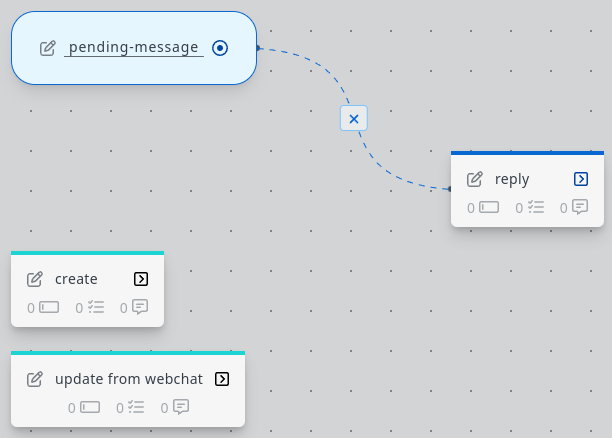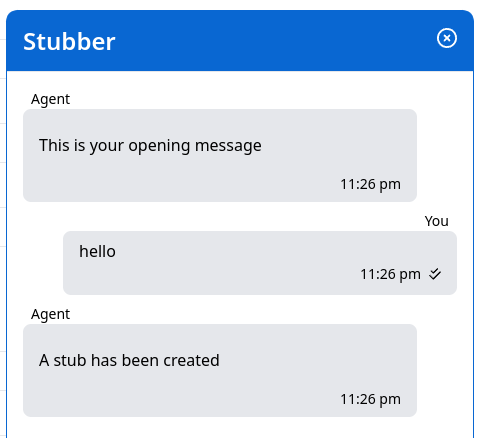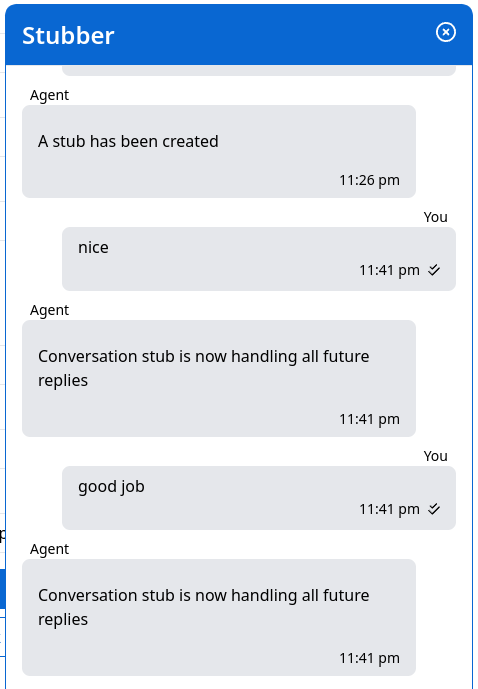Webchat
Webchat template default context
Setting the default context for handling webchat messages
What is the default context used for?
- Handle interactions between the user and other systems in stubber
- Reacting and responding to the user's incoming messages
- The default context has to reply to the user so that a
stubsessionis created between the new stub and the webchat session
Navigate to default context and click on Edit Flow
Replying to a users first message
- Create a state called
pending-message. This will be the state that the stub will be in when replying to the message - Add an action called
reply. This action will send a message to the webchat client. - Add an action called
_create. This action runs when the stub is created. We want to override this action so that the new stubs first action is replying. You can trigger any actions provided you send a reply. - Add an action called
_update_from_webchat. This action will be used to trigger a reply to the webchat when a user sends a message

- Data for the webchat client will be present at
stub.data._incoming_webchat_data - In the
replyaction add theWebchat notification to sessionfrom the library. changewebchat.sessionuuidvalue to~~stub.data._incoming_webchat_data.sessionuuid. This will allow the notification to send a message to the correct client.
In the
_createaction add the taskSend actionfrom the library. Change theparams.action_nametoreply. This is to trigger a reply when the new stub is created. Once the reply is sent, a stubsession will be created between the new stub and the webchat client allowing all future messages to be routed into the action_update_from_webchat.Change the
params.messageto the valueA stub has been created. This is so that we can identify what action triggered the reply

Replying to a users future messages
- To run actions when a user send a message we need to add the task
Send actionto_update_from_webchat. - Change the
params.messageto the valueConversation stub is now handling all future replies. This is so that we can identify what action triggered the reply
- Now all future messages will be handled by the conversation stub as seen below
